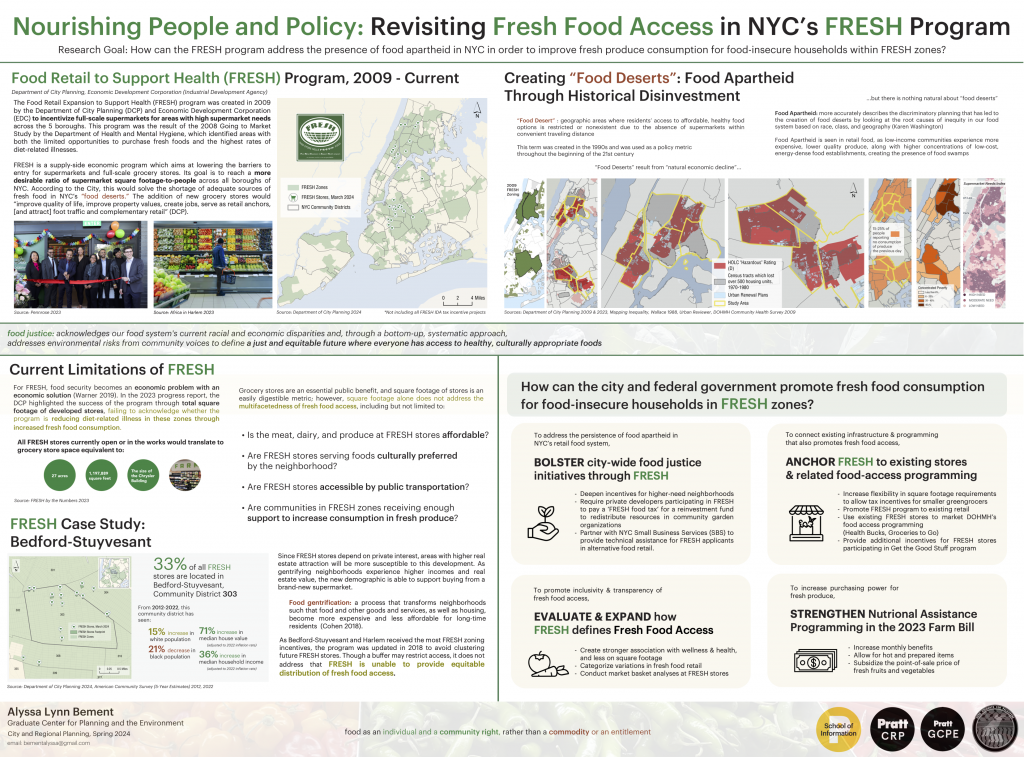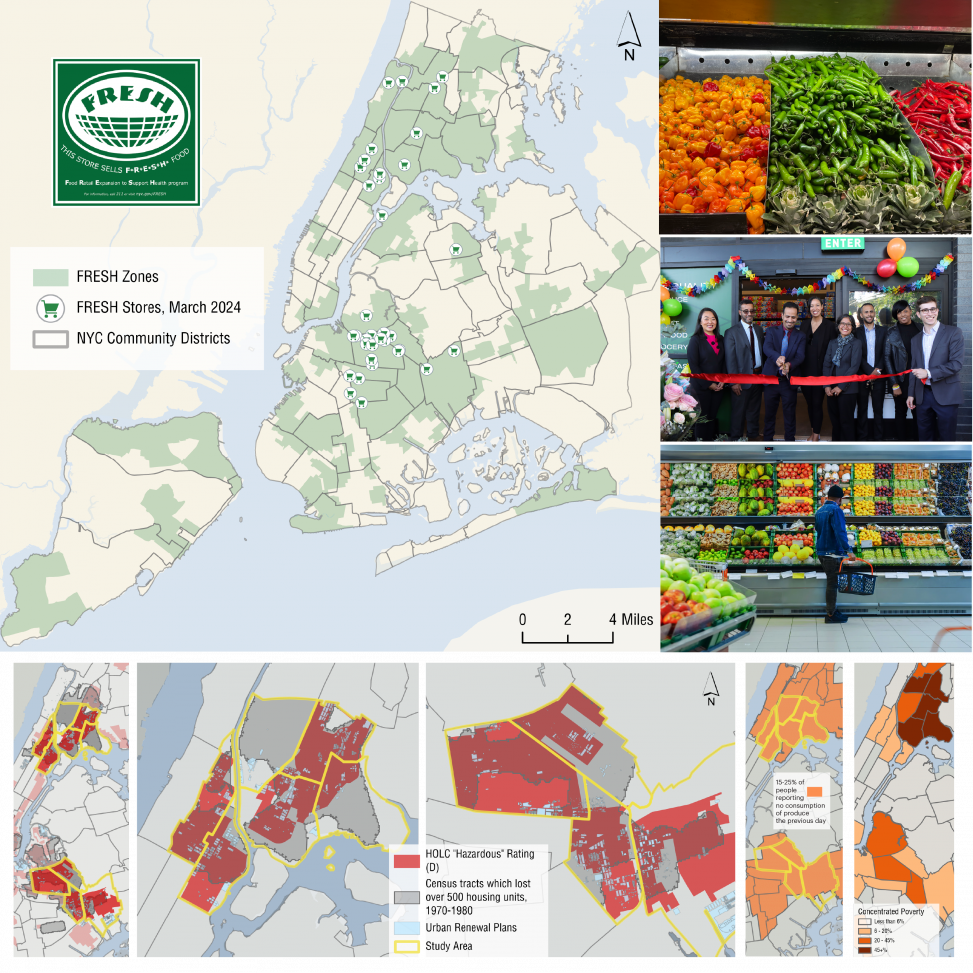This thesis project examines the role of NYC’s grocery store infrastructure and alternative food retail in promoting fresh food consumption within vulnerable communities. My work looks into the conceptualization of “food deserts” and how they dismiss discriminatory planning practices that displaced residents and their retail while restricting new food retail development. Food Apartheid is a more accurate term to describe this occurrence.
Supermarket incentive programs were one of the main strategies adopted to address “food deserts”. In 2009, the NYC Department of City Planning created the FRESH program to incentivize full-scale supermarkets in high-need areas through public-private partnerships. These areas were determined through a 2008 study identifying low supermarket access and high rates of diet-related illnesses. The program is still active and has built 36 stores; however, it is unclear if it reduces diet-related illness through increased fresh food consumption for vulnerable households. Though additional supermarkets can increase awareness of fresh food, there are several other socio-economic barriers, as a result of Food Apartheid, that need to be addressed in order to also promote consumption in these neighborhoods.
My project evaluates the current success of the FRESH program and offers recommendations to adapt the program from a “food desert” approach to one that acknowledges Food Apartheid in these high-need areas to promote fresh food consumption.
How can the FRESH program, a city initiative to incentivize supermarkets, address the presence of food apartheid in NYC in order to improve fresh produce consumption for food-insecure households within FRESH zones?

